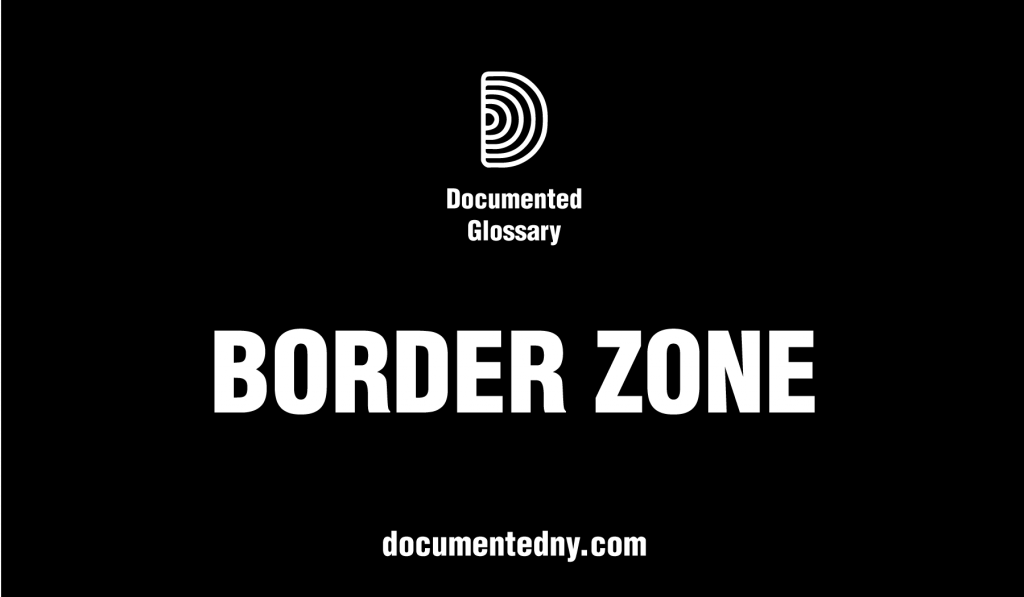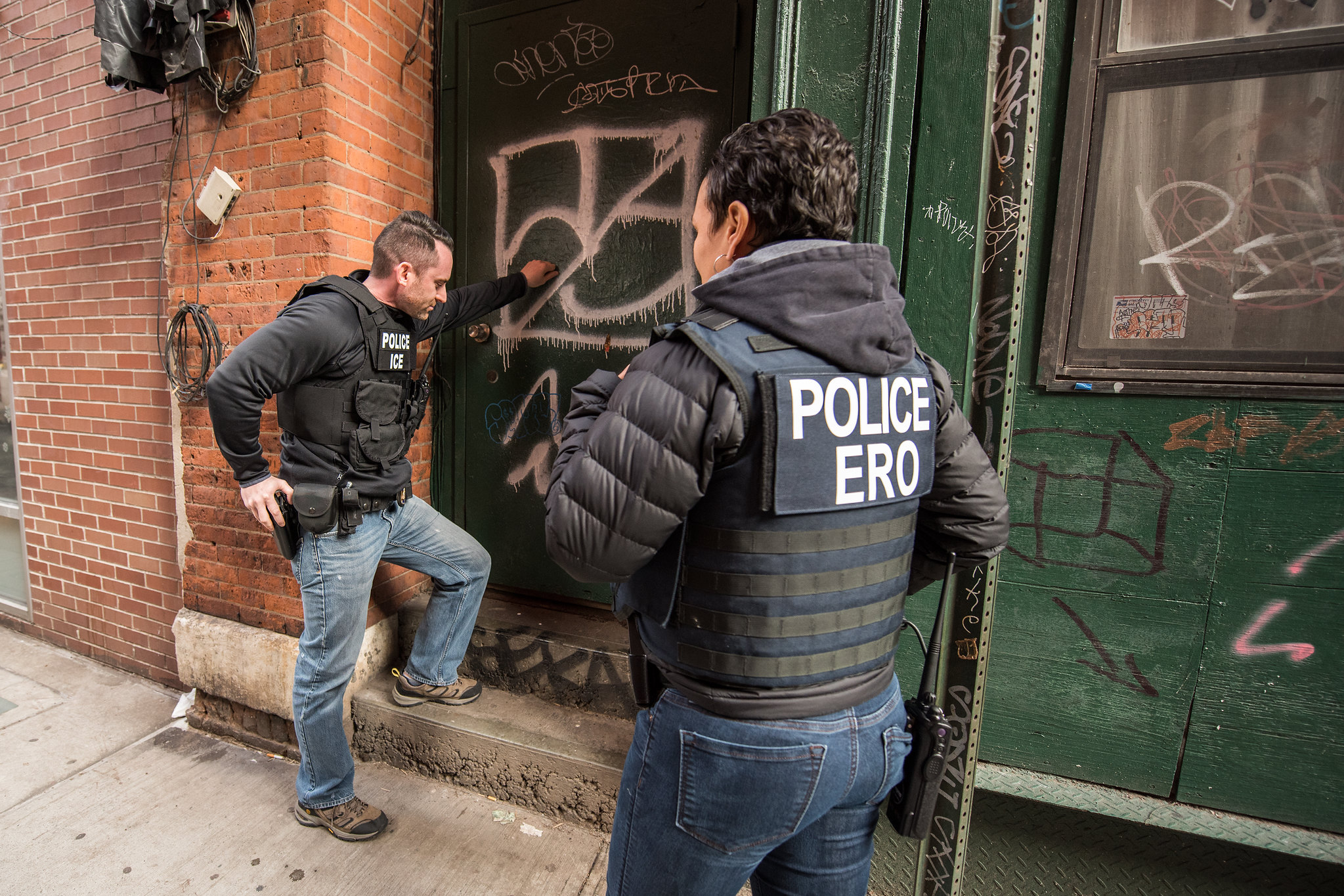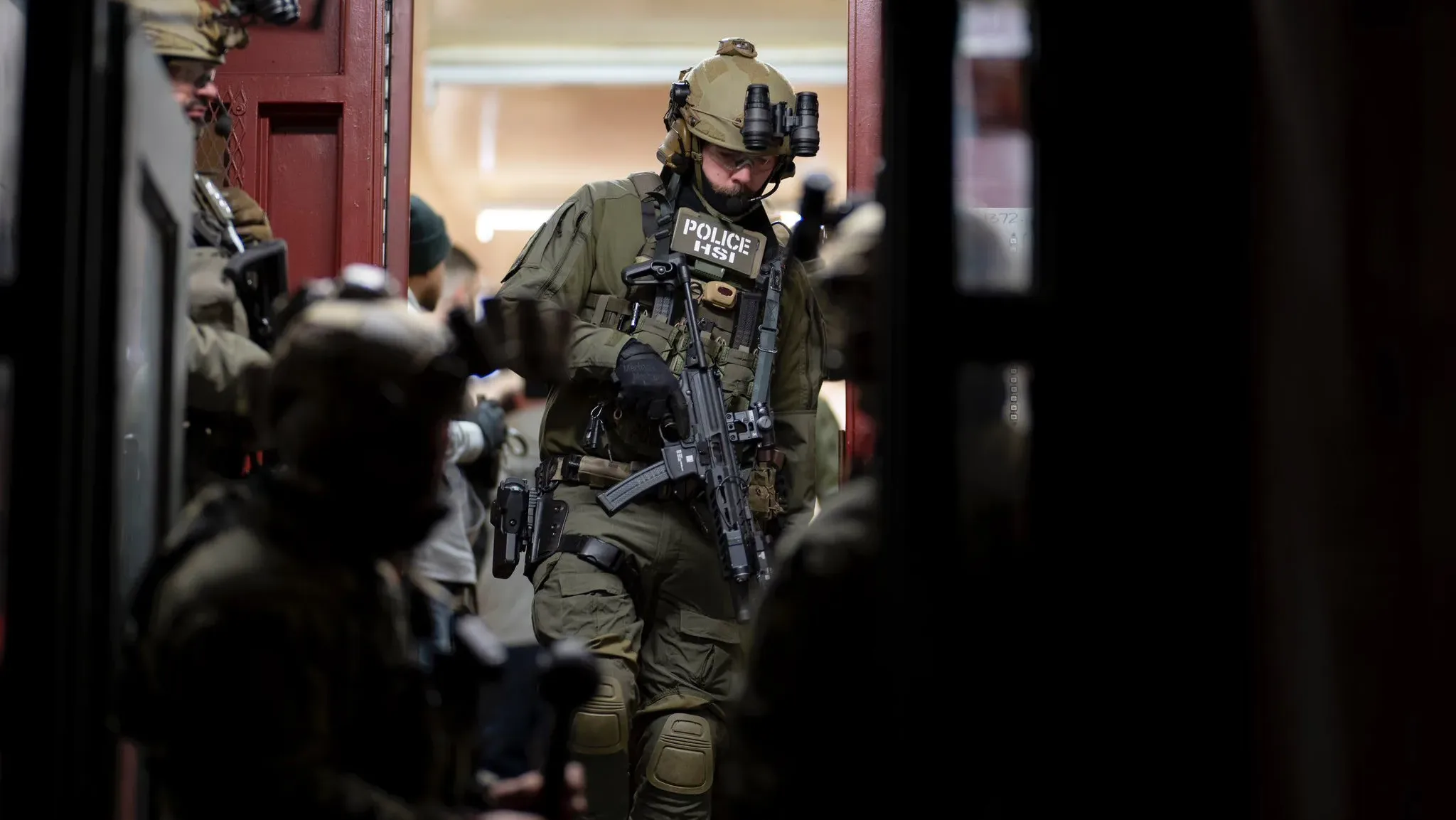
-> This article is part of Documented’s Glossary. We want to make it easier for all to understand the US immigration system. If you want to know more about different visa types and immigration terms, please check our library here.
-> To see more useful information for immigrants such as food or legal representation, check out our Master Resource Guide.
Federal law grants U.S. Customs and Border Protection (CBP) the right to perform searches and seizures without warrant or probable cause “within a reasonable distance from any external boundary of the United States.”
An external boundary is considered any international point of entry into the U.S., including international land borders and the coastline. The government has defined this reasonable distance as 100 air miles. This radius, emanating 100 miles out from all of the country’s external boundaries, is known as the border zone.
It is estimated that two thirds of the U.S. population live within the 100-mile radius, including most of the 10 largest cities in the U.S.: New York City, Los Angeles, Chicago, and others. Some states, like Florida, lie entirely within this border band so their entire populations are impacted. (aclu)
CBP can set up permanent and temporary checkpoints, patrol highways and board buses, trains and other vehicles anywhere within the border zone. Federal law grants CBP the right to enter private property, except “dwellings,” within 25 miles of an external boundary, too.
Border zone limitations under the Fourth Amendment
While federal law permits CBP officers to question individuals without a warrant and probable cause, the Fourth Amendment protects against arbitrary arrests, and is the basis of the law regarding search warrants, stop-and-frisk, safety inspections, wiretaps, and other forms of surveillance, as well as being central to many other criminal law topics and to privacy law. Federal agents must establish they have reasonable suspicion of an immigration violation to perform searches or detain people.
- You have the right to remain silent or tell the agent that you’ll only answer questions in the presence of an attorney, no matter your citizenship or immigration status. (aclu)
- An officer cannot detain you or check your belongings without “reasonable suspicion” or probable cause.













